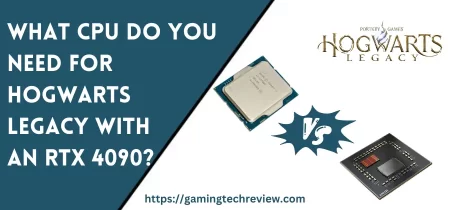
If you’re a gaming enthusiast, you may have come across the term “RTS” quite often. It’s an acronym that holds significance in the gaming world and refers to a popular genre of video games. In this article, we will delve into the world of gaming and explore what RTS stands for, its history, gameplay mechanics, and some notable examples. So, let’s dive in and uncover the exciting realm of RTS gaming!
Introduction to RTS Games
Real-Time Strategy (RTS) games have captivated gamers for decades. They offer a unique blend of resource management, strategic decision-making, and fast-paced action. Unlike turn-based strategy games, RTS games require players to make decisions and execute actions in real-time, making for intense and thrilling gameplay experiences.
RTS: Defining the Acronym
RTS stands for Real-Time Strategy. In these games, players control armies or factions and compete against opponents in a dynamic, ever-changing environment. The real-time aspect implies that the game progresses continuously, and players must react and adapt quickly to changing circumstances.
Evolution of RTS Games
The roots of RTS games can be traced back to the 1980s, with influential titles like “Herzog Zwei” and “Dune II.” However, the genre gained mainstream popularity in the mid-1990s with the release of “Warcraft: Orcs & Humans” and “Command & Conquer.” These games laid the foundation for the modern RTS genre, introducing mechanics such as base-building, resource gathering, and tactical combat.
Key Gameplay Mechanics
In RTS games, players must manage resources, construct buildings, train units, and engage in battles with opponents. The gameplay typically involves gathering resources, such as minerals or energy, to fund the construction of structures and the recruitment of units. Players must also allocate their resources wisely, strategize their moves, and adapt their strategies based on the actions of their opponents.
Notable RTS Games
Several iconic RTS games have left an indelible mark on the gaming industry. Here are some noteworthy examples:
Age of Empires
The “Age of Empires” series, developed by Ensemble Studios and published by Microsoft, spans different historical periods, allowing players to build civilizations and shape their destinies. The series debuted in 1997 with the release of the first game, and it has since evolved with sequels and spin-offs. Each installment offers unique campaigns, diverse civilizations, and strategic gameplay that requires players to manage resources, conduct diplomacy, and engage in warfare. “Age of Empires” has become synonymous with the RTS genre, inspiring countless players and fostering a strong community.
Warcraft III: Reign of Chaos
Blizzard Entertainment’s “Warcraft III: Reign of Chaos” introduced groundbreaking elements to the RTS genre. Released in 2002, the game blended traditional RTS mechanics with role-playing elements, allowing players to control heroes with unique abilities. The immersive campaign and the introduction of the World Editor, which enabled players to create custom maps and scenarios, contributed to the game’s enduring popularity. “Warcraft III” also laid the foundation for the immensely popular multiplayer mod, “Defense of the Ancients” (DotA), which eventually led to the creation of the highly successful MOBA genre.
Total War: Warhammer
Combining the grand strategy of the “Total War” series with the rich lore of the Warhammer Fantasy universe, “Total War: Warhammer” brought a unique fusion of strategy and fantasy to the RTS genre. Developed by Creative Assembly, the game offers massive battles between various factions, each with its own distinct playstyle and units. The deep strategic layer, combined with epic real-time battles, provides players with a captivating and immersive experience. The success of “Total War: Warhammer” led to the release of a sequel and a growing franchise that continues to evolve.
Advantages of Playing RTS Games
RTS games offer numerous benefits to players. They enhance critical thinking, decision-making skills, and strategic planning abilities. These games also promote multitasking, as players must manage resources, command armies, and respond to various in-game events simultaneously. Additionally, RTS games foster creativity and provide a platform for players to showcase their tactical prowess.
Impact of RTS Games on the Gaming Industry
RTS games have had a significant impact on the gaming industry. They have pioneered innovative gameplay mechanics, inspired other genres, and contributed to the growth of esports. RTS games have a dedicated fan base and have paved the way for competitive gaming tournaments with substantial prize pools. Furthermore, the influence of RTS games can be seen in the design and mechanics of many modern strategy titles. Most individuals use BM in RTS games to distract other players.
Future of RTS Gaming
As technology continues to advance, the future of RTS gaming looks promising. Developers are constantly pushing the boundaries, incorporating new features, and improving gameplay experiences. The integration of virtual reality (VR) and augmented reality (AR) technologies may further enhance immersion and redefine how players interact with RTS games. The genre will likely continue to evolve, captivating both longtime fans and new players alike.
Conclusion
In conclusion, RTS stands for Real-Time Strategy, a genre of video games that offers thrilling, fast-paced gameplay experiences. RTS games have evolved over the years and have become an integral part of the gaming industry. They challenge players’ strategic thinking, decision-making abilities, and resource management skills. With their continued popularity and the constant evolution of technology, RTS games are poised to shape the future of gaming.
Frequently Asked Questions
What are some popular RTS games?
Some popular RTS games include “StarCraft,” “Age of Empires,” and “Command & Conquer.”
Are RTS games suitable for casual gamers?
While RTS games can be challenging, they offer different difficulty levels and tutorials to accommodate players of varying skill levels.
Can RTS games be played competitively?
Yes, many RTS games have thriving competitive scenes with professional players and esports tournaments.
Are there multiplayer options in RTS games?
Yes, most RTS games offer multiplayer modes where players can compete against each other or form alliances.
Can RTS games be played on consoles?
While the majority of RTS games are traditionally played on PC, some titles have been adapted for consoles, allowing players to enjoy the genre on different platforms.













